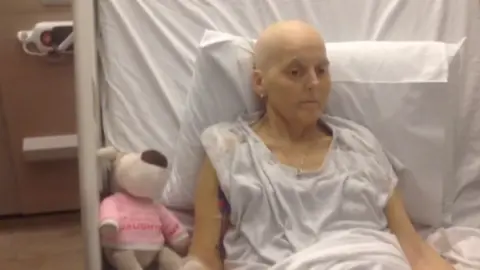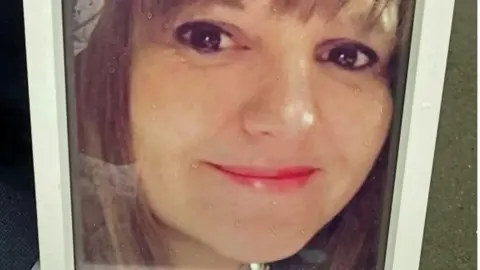Woman 'would have lived' if smear test results were correct
 BBC
BBCA woman would not have died from cervical cancer if she had not been mistakenly given the all-clear from a smear test, an inquest heard.
Julie O'Connor, from Thornbury, died in February after being wrongly told her smear test was normal in 2014 and 2015.
Expert witness Professor John Tidy told Avon Coroner's Court if the cancer had been diagnosed earlier, she would have had surgery and a "good prognosis".
North Bristol NHS Trust accepts both the smear test and a biopsy were wrong.
 PA Media
PA MediaMrs O'Connor, 49, had repeatedly seen her GP over 14 months and been referred to Southmead Hospital, but the cancer was only diagnosed when she saw a private doctor in 2017, the inquest heard.
Gynaecologists told her in October 2015 an endometrial biopsy was negative, and the hospital had also provided a "false positive" result to a routine smear test carried out the previous year.
Prof Tidy, a consultant in obstetrics and gynaecology, told the court: "I would have expected the majority of women with Stage 1B cervical cancer to have survived for over five years."
He said doctors examining Mrs O'Connor's original smear test failed to detect the presence of a severe dyskaryosis, a condition which if left untreated can lead to cervical cancer.
"Women with dyskaryosis are at a high risk of cervical cancer but it is still very, very low.
"The vast majority of women who are treated for dyskaryosis would not go on and develop cervical cancer," Prof Tidy said.
 O'Connor family
O'Connor familyAnother expert witness, consultant gynaecologist Professor Robert Hammond told the court what would have happened if Mrs O'Connor had not been given the all-clear from the smear test.
He said she would have undergone further procedures to remove the affected cells and would have had less than 1% chance of developing cervical cancer in the future.
Avon coroner Maria Voisin asked Prof Hammond: "Is it fair to say she would not have died in February, if she did?"
He replied: "Yes."
Another expert witness Professor Sir Nicholas Wright said he had examined the endometrial biopsy undertaken in October 2015 and concluded it showed the presence of cervical cancer.
Prof Wright said: "There were two pieces of tissue which showed unequivocally evidence of signs of carcinoma.
"Most pathologists reviewing these sections with due care should have seen them. It would have required further investigations and further biopsies to be taken."
The inquest continues.
